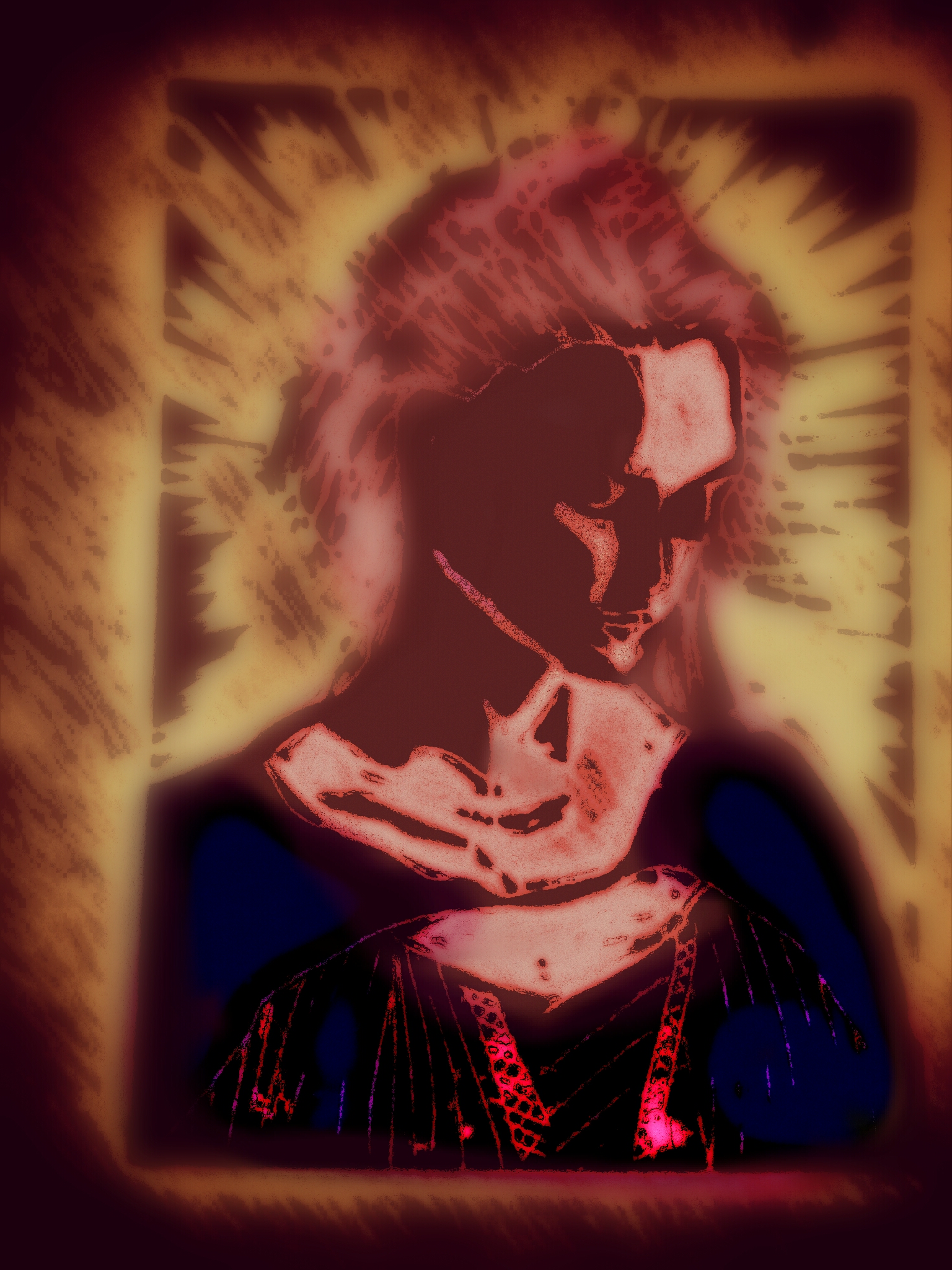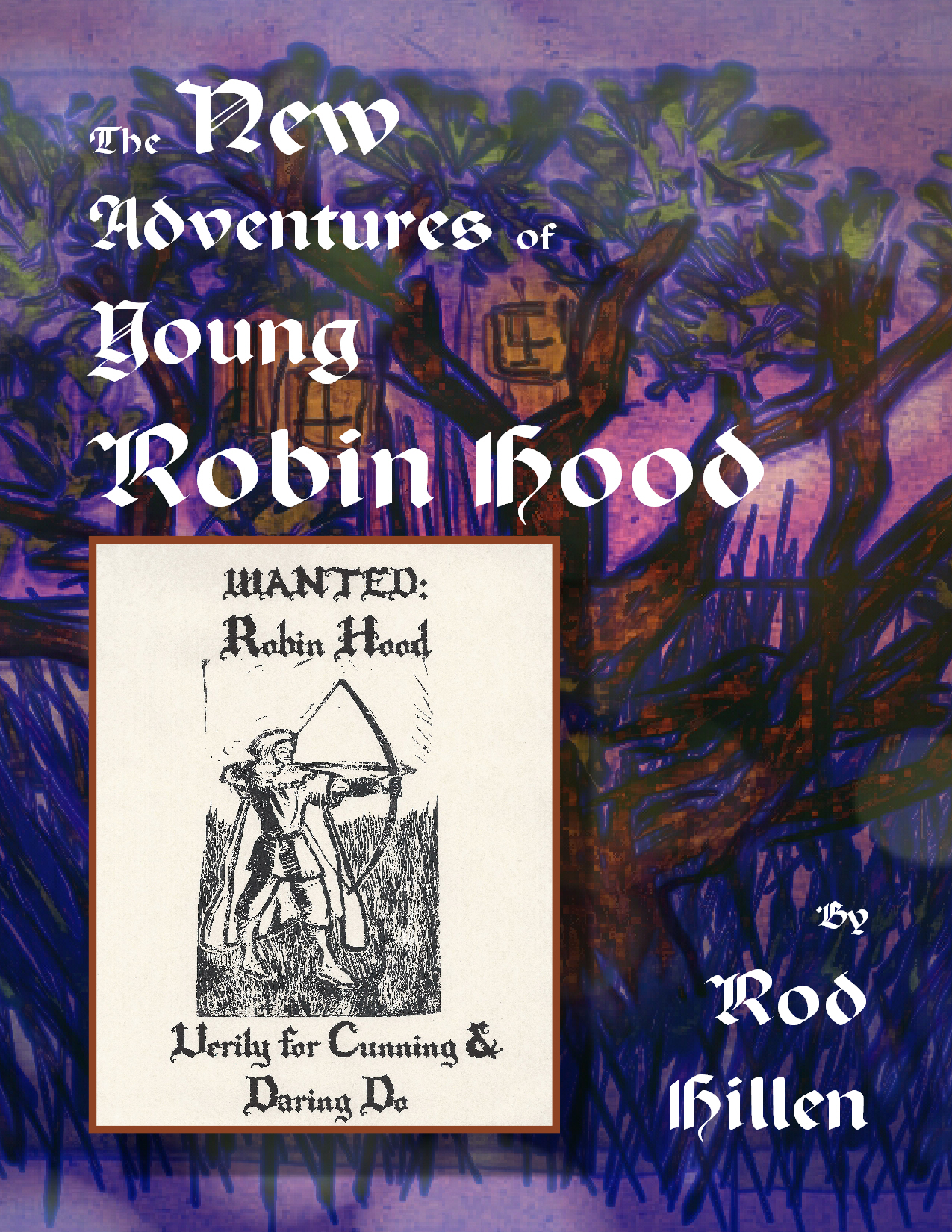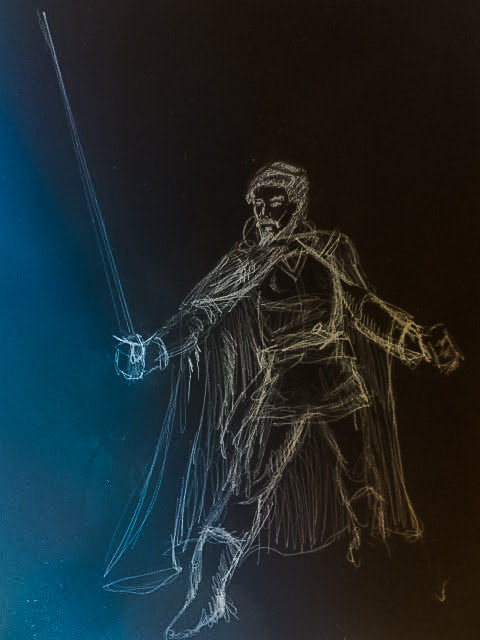

News of the Shrove Tuesday carnival did not pass by the greenwood unnoticed; many of the wives took their children to church and Father Cedric was promoting this year’s festival with unusual fervor. The children especially wanted to attend. It seemed living in the woods had its attraction for children, but the prospect of sweets was hard to pass up. Holy days were considered a general amnesty for outlaws not wanted for heinous crimes. People would come from the entire shire and though the outlaws were many, they were a small percentage of the entire countryside. Tom was on the mend, and he and Robin were determined to take place in the festivities. “You could win the archery contest, hands down.” said Tom. Robin had been teaching the men of Sherwood Forest to shoot as well as make their own bows and arrows. He didn’t fancy trying to feed the whole forest. He had gained quite a reputation in the greenwood.
“Archers like me are common enough.” said Robin. “But I will be happy to give it a go.”
Most things needed by man can be made from nature, and the people of the greenwood had little need to venture into town, save one: it was their rightful home. There was a degree of shame that came with being an outlaw. That you were outcast. With the new found pride and comradery that the people of the greenwood felt, much of the shame they had felt, dissipated, and they began to venture into the neighboring towns. Tom wanted to go into town to obtain some cloth for his wife and children to have new clothes in time for the festival. He and Robin ventured into Nottingham one cold and windy February morning. In the marketplace, there were several weavers; some with stalls, others had shops. Robin preferred the stalls, but Tom liked the shops, and as it was cold, they lingered inside examining fabrics they would never buy.
The door opened with the wind forcing its way in ahead of the woman. The lanterns flickered a bit in the breeze. The new customer lowered her hood and shook her hair. She brushed it out of her face with a hand that had long, delicate fingers. Her cloak was deep blue, and her dress underneath was a blue so pale that it was almost white. Her auburn hair was somewhat windblown, stray hairs danced in the breeze. The effect was that of an intimacy; to be seen in an unguarded moment. Her face was flushed from the cold and the color in her cheeks resembled a nimbus. Her eyes were the blue of a cool pond reflecting the evening twilight. Robin heard music playing somewhere nearby. She met his gaze coolly and walked past him to the counter.
The proprietor was an elderly woman with her hair in a bun and a knit shawl around her shoulders. She beamed at Marian though she could barely make her out. Her vision had been waning for years and she relied mainly on instincts to substitute, and for her this worked quite well. “Good Morning, Marian!” the old lady said in a paper thin voice.
“Good Morning, Gladys.” Said Marian.
Robin had been transfixed by Marian from the moment she walked into the shop. The music he heard was heard by no one else. He heard birds singing too, though it was only February. Tom walked up to Robin and whispered, “Close your mouth before something flies into it. And don’t stare! Your worse than Henry.”
Robin Blushed and turned to Tom to retort, but the music stopped. Confused, Robin turned back to Marian, and sure enough the music started again. a fife and a lute, and birds.
“What brings you here today, dear one?” asked Gladys of Marian. The old woman looked like a shrunken apple come to life and had a rosy complexion that came through in her personality as well.
“I will have to cancel my order for the new fabric, Gladys.” said Marian.
“Whatever for?” said Gladys.
Marian bit her lip trying to decide how much to reveal to Gladys. “The money is needed for the festival.” she said. “The children need it more than me.”
“Posh!” said Gladys. “That fabric was made literally for you! It’s deep blue, like the night, just after the last of the light has gone. Why it’s your color, dear!”
“Gladys, I can’t.” said Marian.
“How much is it?” interrupted Robin.
“I will thank you to mind you own business!” The girl said. “This is a private conversation. Why, I don’t even know you!”
“Allow me to introduce Robin of Sherwood.” said Tom.
“And you are….?” asked Marian.
“This is Tom.” said Robin. He looked to Gladys as if for conformation. She continued to beam at them. Robin produced some coins from his purse at his belt. “Will this be enough?” he said. “And for the orphanage.” he said producing more.
Marian looked Robin up and down, taking in his ragged yeoman’s clothes that had spent the winter in the forest, and she looked at the money he was offering. “You’d best be careful with your purse, sir. There’s thieves about.”
“Is there?” asked Robin.
“Aye. They live in the forest.”
“We’ll keep an eye out Ma’am.” said Tom.
“It’s Miss”
“Miss?” said Robin. “Miss what?”
“Miss me every time.” said Marian.
“We should be going.” said Tom, who thought it was a bit early for spring. He pulled Robin by his arm.
“Wait.” Robin said. “Here, Miss. Miss Marian. Take it. Give it all to the orphanage if you won’t take it for yourself.”
“Give it to them yourself, Sir” said Marian and turned back to Gladys.
“Let’s Go.” said Tom. “It’s a bit stuffy in here.”
“But…” protested Robin. Tom pulled him outside. “But she’s beautiful!” said Robin.
“Aye.” said Tom. “She’s trouble, that one.”
Back inside the shop, Gladys said, “Oh, he seems nice.”
“Gladys, your blind as a table leg. He was a vagabond.”
“Even a blind table leg knows it can’t hold the table up by itself.” said Gladys.
“Where should we go now?” asked Tom.
“Why, to the orphanage, where else?”
St Anne’s Orphanage was a series of wattle and daub buildings on the outskirts of the property of St. Mary’s Church. It was run by the monks and nuns who also maintained quarters elsewhere on the vast acreage of St Mary’s. St Mary’s had been around since before the Normans, and it was rather large for a church in the midlands. Whereas in neighboring Derbyshire there were churches in each village within the shire, St Mary’s was the main church for the county. To be sure, there were churches in each village in Nottingham, they looked to St Mary’s for festivals, holidays and large gatherings. The monks had elected Cedric to the position of Vicar since the death of the previous vicar nearly ten years past.
There was a boys dormitory on one side and a girls on the other. The office, school, and cafeteria were in the middle. The entrance to the grounds on the south side led to the office, and at the other end past the cafeteria was a garden. beyond that was a field for games. Beyond the field at the north end was the greenwood. Sherwood Forest proper was in the north of the county, but the primeval woods of which it was a part extended throughout the county (and indeed throughout the midlands). The greenwood was a term that referred to the whole area of wilderness.
The path leading to the office had a lawn on either side and was officially off limits to the children. Presently, two boys were running around on the lawn, chasing each other. The one being chased was taller, had a shock of red hair and was named John. The chaser was a runt. A little blond boy who made up in ferocity what he lacked in stature. His name was Eric. After some valiant zigging and zagging, there was an “oof!” followed by a thud and some rolling about. After a moment the boys got up, laughing and covered in the dead grass of winter. Eric looked up and stopped laughing and John looked up to see what had caused the suspension of antics and stopped laughing too. There were two specters of men standing there looking at them, older versions of themselves.
“Well don’t stop on our account.” said Robin. “We were just looking for the office.” The taller boy shook his head as if such information was not to be given out, while Eric pointed to the obvious building that the path the men were on led to. Johnny cuffed Eric on the shoulder and shot him a look. Eric cuffed Johnny back and it was back to rolling on the lawn.
Inside the office, there was a rotund young tonsured monk sitting at a desk, making every effort to fill in a ledger. At the sound of the two men coming in he endeavored to finish his entry lest he have to start again. When he looked up, he saw Robin and Tom waiting patiently, their hoods down and smiles on their faces. He returned the smile.
“What can I do for you fine gentlemen?” he asked.
“We would like to make a donation.” said Robin.
“We understand the orphanage is in need.” said Tom.
“A recent robbery.” said Robin.
At this the monk’s smile faded, which is not what you would expect from an offer of a donation. “There has been no robbery.” said the monk. “I didn’t get your good gentlemen’s names.”
“This is Robin, and my name is Tom. We didn’t mean any disrespect. If you don’t need the money, we’ll be on our way.”
“Maybe that would be for the best.” said the monk and returned to his ledger which, if you could read it, would say that any donation would be greatly appreciated.
“Wait.” said Robin. “Perhaps we got off on the wrong foot.”
The monk looked up and regarded the men for a moment. “Where did you hear we had been robbed?”
“A young lady. Miss Marian.” said Robin watching for and seeing recognition in the monk’s eyes.
“Shut that door.” said the monk. He himself locked the door behind him after checking that there was no one behind it. “Marian told you we had been robbed? How do know Marian? When did she tell you that?”
“We were in the dress shop…” started Tom. and the monks eyebrows went up.
“His wife needs a new dress. We were shopping for cloth” said Robin. “And in comes this vision.”
“Marian.” said Tom.
“At Gladys’.” said the monk.
“Right.” said Tom.
“And she says she has to cancel her order, because the orphanage needs it.” said Robin.
“Because we had been robbed?” asked the monk.
“No.” said Robin. “I offered to pay, and she said to be careful of robbers.”
“She was implying that WE are robbers, Robin. Can you blame her? Look at us.” said Tom.
“Why didn’t you say that before?” said Robin.
“I thought it was obvious.” said Tom.
“Because we have money? And look like this?” Robin was getting angry. There’s nothing like a time released insult to get to you.
“So you’re not robbers?” said the monk.
“What? No!”
“How is it then, that you look like that, and yet have money to give away?”
“I didn’t get Your name?” said Robin.
“Tuck. Friar Tuck; at your service.” Tuck smiled. “So, you’re not robbers then?”
“You know, I wasn’t really there.” said Tom. “Let’s hear it again.”
“Tom! I was on an errand for your Maggie!”
“And I am grateful.” said Tom.
“This wouldn’t have anything to do with the sheriff’s taxes, would it? And certain Parishioners having a few extra coppers come Sundays lately? Would it?”
The two stopped and looked at Tuck with eyes that were impressed when they saw a bulls eye. There was a bit more checking that there was no one listening at the doors and then Tuck poured them all a glass of wine.
It was getting dark when the three men emerged from the office. Tuck had sent to the cafeteria for lunch. “Well, what’s to be done?” said Tuck. “We will just have to raise more money.”
“Or…” said Robin. There will have to be another robbery. This time on purpose.”
 For a time, the wind blew Marina in the clouds where she was born. In the diffused electric light of the lightning behind the clouds, she could see the other baby raindrops whirling around in the high winds of the sky, playing in the clouds.
For a time, the wind blew Marina in the clouds where she was born. In the diffused electric light of the lightning behind the clouds, she could see the other baby raindrops whirling around in the high winds of the sky, playing in the clouds. As morning came, marina began to fall beneath the clouds. The cool grey clouds began to blur. All around marina, there were millions of other raindrops all falling through the endless sky. She became friends with many of the raindrops around her. Some became part of her life.
As morning came, marina began to fall beneath the clouds. The cool grey clouds began to blur. All around marina, there were millions of other raindrops all falling through the endless sky. She became friends with many of the raindrops around her. Some became part of her life. Marina and her friends basked in gleaming morning sunlight. She could see light pouring through her and her friends creating an arcing rainbow that stretched to the sparkling sea below.
Marina and her friends basked in gleaming morning sunlight. She could see light pouring through her and her friends creating an arcing rainbow that stretched to the sparkling sea below.



























